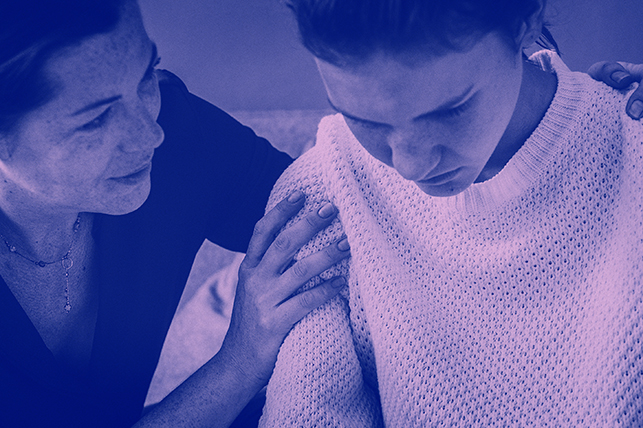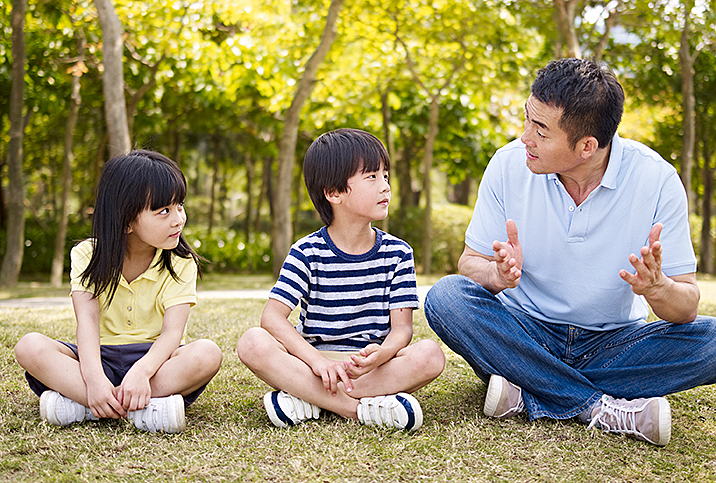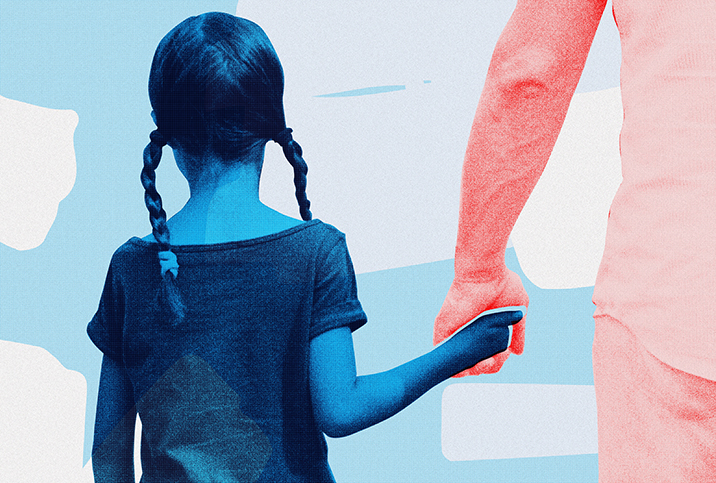Parents' Role in Curbing Sexual Abuse in Young Adults

An estimated 1 in 10 girls younger than age 20 have been forced to engage in sex or perform sexual acts, according to data compiled by UNICEF. Roughly 90 percent of adolescent girls who report forced sex say the perpetrator was someone they knew, usually a boyfriend or husband.
However, this data represents only the reported cases of sexual abuse. There are likely millions of cases of sexual violence against girls and boys that go unreported due to multiple factors, the most prevalent being shame and fear.
For many survivors of sexual violence, lack of awareness and access to resources further compound trauma. Survivors are most commonly concerned with figuring out who they can talk to, if reporting the crime could jeopardize their own safety, and how friends and family will respond.
In vulnerable times
While instances of sexual abuse can happen anytime, there are periods in a young adult's life when they may find themselves more vulnerable, such as the first two years of attending college. This period can be punctuated by a loss of parental guidance and protection, as well as exposure to a large amount of independence in a very short amount of time.
Students are at highest risk of sexual assault during the first few months of their first and second semesters in college, according to the Rape, Abuse and Incest National Network (RAINN), the largest anti-sexual violence organization in the United States. RAINN also states 13 percent of all students, undergraduate or graduate, experience rape or sexual assault through physical force, violence or incapacitation, a number which represents 26.4 percent of females and 6.8 percent of males.
Marcia Moitoso, a clinical counselor based in Ladner, British Columbia, Canada, wasn't surprised by these figures. She believes the first couple of years at college mean a little less accountability and more circumstances that can turn dangerous.
Violence can also be perpetuated in the form of sustained sexual abuse in relationships. Although each situation is unique and complex, there are some ways to spot red flags and sexual abuse in relationships.
"Quite often, the victim will identify as a bit more of a people-pleaser and they start to take that on as an identity," Moitoso explained. "And so, over and over, their needs are suppressed in favor of the abusive individual."
Moitoso encouraged people who believe they might be in a sexually abusive relationship to pay attention to their intuition.
"A lot of times [the intuition is] there," she added. "They're aware that what's happening is wrong. But that continues to be suppressed because they're often highly manipulated by the other person. If you're noticing that you've been cut off from other relationships, this is something that can be a sign of an abusive relationship; if you're relying only on that person, or if that's something that's developing and that person seems to be facilitating it."
Moitoso said if supportive people in your life are questioning the safety of your relationship, it may be a good idea to step back, reassess and reach out for help.
Power imbalance is one of the biggest red flags of an abusive relationship, said Quinn Cashion, a counselor based in North Vancouver, British Columbia, Canada, who specializes in trauma.
"Someone might be intimidating them," she explained. "They're giving them certain types of looks…making sure that they've groomed them well to feel like they can trust them. And then it shifts into the emotional abuse piece, putting them down and [telling them] that what they're thinking is not accurate, playing mind games, making them feel guilty about certain things and isolating them."
Support systems matter
Grappling with the realization you have been sexually abused or assaulted is a painful process. It's extremely important that you have support systems in place to get through the pain. This support system can be different for different people, but both Moitoso and Cashion strongly recommended reaching out to a mental health resource or a therapist who specializes in trauma when you feel like you're ready to talk.
In the process of healing from your assault or abuse, it's critical that you are not retraumatized. This is why Moitoso advises people who are trying to support a loved one who was assaulted to understand that they are going to process it in their own time.
"If they're not ready to talk about it yet, don't force them to talk about it," she added. "Just be with them for what they need and where they're at. Help them to find a professional to work with if you have the capacity for that."
You can gently recommend that the victim reach out to resources such as the National Sexual Assault Hotline at 1-800-656-HOPE, the National Teen Dating Abuse Helpline online and at 866-331-9474, and the End Rape on Campus advocacy organization, all of which provide support and empower victims to seek justice.
Some other ways to support a victim can be aiding in the healing process and offering a listening ear.
"The way to healing, really, is through the body," Moitoso said. "When somebody goes through an assault, their body becomes very frozen; in a lot of ways, their nervous system becomes frozen. So, you know, maybe even just kind of being a friend to engage in physical activities together, for instance, inviting that friend to a yoga class or to go for walks, offering opportunities to get their bodies moving [can help]."
Through all of this, be mindful of their readiness to heal, she added.
Healthy conversations around consent
It's important to instill the concept of consent as soon as children reach the age of comprehension. Both Moitoso and Cashion said this requires parents to normalize conversations about the human body. One way to do this is by teaching them anatomically correct terminology, which in turn makes it part of their normal language and takes away any secrecy around the subject.
Teaching children about bodily consent even outside a sexual context can help them learn and understand their own boundaries and bodily autonomy. For example, you may teach them something as simple as whether they want to greet a family member with a hug or ask them for permission before giving physical affection. These vital skills can protect them from assault scenarios later in life.
Cashion also recommended enrolling young children in self-defense classes, which she emphasized not only teaches them to protect themselves but also builds confidence.
Teaching children about bodily consent even outside a sexual context can help them learn and understand their own boundaries and bodily autonomy.
Moitoso encouraged parents to have healthy and positive conversations around consent.
"It's not about scaring them; it's not about saying if you go out this is going to happen to you," she said. "It's really about talking about here's what consent looks like, here's how sex can be pleasurable. Your pleasure matters. And [it's] especially about letting them know that they can start a sexual process and they can say no at any time and that's OK."
Establishing these types of honest conversations provides a safety net for children in young adulthood.
"If they're in an uncomfortable situation, they can call the parent, no questions asked; [and] setting up other people that the child or young adult can call, as well, having a safety plan," Moitoso said.
Both Moitoso and Cashion recommended parents have these conversations as early as possible and continue them throughout different stages of development.
For teenagers and young adults undergoing pain from sexual abuse or assault, confidence in support systems can mean everything. While it's hard to shield a loved one from the world, what you can do is prepare them and support them as they navigate their way through life.


















